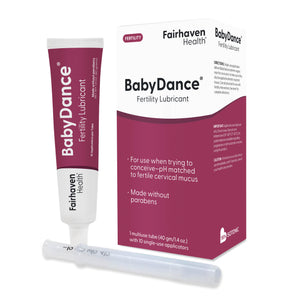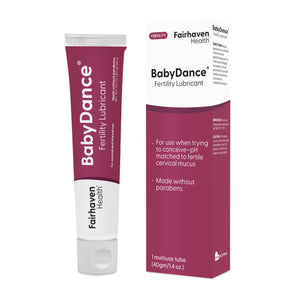 Research shows that dads and other parenting partners heavily influence feeding choices. Parents that attend breastfeeding classes together have higher confidence in feeding choices and are most likely to still be breastfeeding at 12 months. Mothers with partner support are more likely to start and reach their breastfeeding goals. A parenting partner’s attitude about breastfeeding is almost as predictive of breastfeeding success as the attitude of the new mother.
Research shows that dads and other parenting partners heavily influence feeding choices. Parents that attend breastfeeding classes together have higher confidence in feeding choices and are most likely to still be breastfeeding at 12 months. Mothers with partner support are more likely to start and reach their breastfeeding goals. A parenting partner’s attitude about breastfeeding is almost as predictive of breastfeeding success as the attitude of the new mother.
Understanding the way men of childbearing age think about breastfeeding can provide guidance for new, more effective interventions aimed at fathers. A 2016 study looked at men’s attitudes about public versus private breastfeeding and how that relates to their knowledge about infant feeding.
A sample size of 500 men was shown four images of a mother breastfeeding:
-
Outdoors on a public bench
-
Shopping with other women in an international market
-
On a subway surrounded by male and female passengers
-
Privately at home.
Each image showed the baby at the breast with no cover and her breast is partially visible in Images 2 and 4 but not visible in Images 1 and 3.
These are big benefits, the positive effects of breastfeeding means thousands more women will survive breast cancer to care for their children and watch them grow. Researchers are learning more about the many ways breastfeeding protects us from breast cancer, reinforcing the idea that the function of breasts is to make milk to nourish our young.
Before you find out the results of the survey, think about your last encounter with a mother breastfeeding in public – how did you react? I usually try and give her privacy but before turning away, a small smile that I hope shows solidarity, not embarrassment. I am rarely without at least one of my children, and usually with all three. We move through public places like a twin tornados (loud and bumping into each other), my motherhood status is impossible to miss. If I was a man, even with children, would I react differently? And if so, why?
A second part of the 2016 study was the men’s level of knowledge about infant feeding using the Iowa Infant Feeding Attitude Scale (IIFAS). If you aren’t familiar with the IIFSA, it is a group of 17 questions used to determine feelings about infant feeding methods. For example, costs (e.g., "Formula feeding is more expensive than breast-feeding"), nutrition (e.g., "Breast milk is tehe ideal food for babies"), convenience (e.g., "Breast-feeding interferes with a couple's sexual relationship"), and infant bonding (e.g., "Breast-feeding increases mother-infant bonding"). A higher score reflects a pro-breastfeeding attitude. So the study had 2 parts – the men’s reaction to the images and their attitude about breastfeeding.
Results…Images 1 and 2 were perceived similarly; breastfeeding alone in a public area or surrounded by other women were not perceived markedly different. The men had the most positive reaction to image #4 (breastfeeding privately at home) and the most negative reaction to image #3 (breastfeeding on the subway with men and women passengers).
The words the men most frequently chose as negative descriptors were embarrassing and weird. The most commonly chosen positive descriptors were realistic, practical, healthy and natural. Not surprisingly, the men scoring higher on IIFSA also scored the images more positively.
Conclusion…Educating men about the benefits of breastfeeding reaches beyond their familial circle and into the broader society. The data show each 1 point increase on the IIFSA scale correlated with a 6.98- to 12.61-point increase in their positive perception of all breastfeeding images! A very significant increase!!! Men that react positively to breastfeeding and pumping in the workplace can create a supportive work environment for co-workers. Law enforcement, military and government could all benefit from men (and women!) that are more breastfeeding friendly.
Keep encouraging and educating the men and boys in your environment. Their knowledge about the benefits of breastfeeding reverberates like ripples on a pond, giving their partner the support she needs and growing acceptance for breastfeeding in society.
Resources
de la Mora, A., Russell, D. W., Dungy, C. I., Losch, M., & Dusdieker, L. (1999). The Iowa Infant Feeding Attitude Scale: Analysis of reliability and validity. Journal of Applied Social Psychology 29(11), 2362-2380 from source https://www.perl.hs.iastate.edu/personnel/mora/iifas
Magnusson, B., Thackeray, C., Van Wagenen, S., Davis, S., Richards, R., Merrill, R. (2017). Perceptions of Public Breastfeeding Images and Their Association With Breastfeeding Knowledge and Attitudes Among an Internet Panel of Men Ages 21–44 in the United States. Journal of Human Lactation. From online source https://journals.sagepub.com/doi/full/10.1177/0890334416682002
Other Breastfeeding Articles:
- Kicking the Can - How to Wean off Formula
- I don’t know where to look! Men and public breastfeeding
- Breastfeeding Lowers Breast Cancer Risk. But How?
- Vaginal Delivery, Breastfeeding, and Your Baby's Microbiome
- Back to Work and Breastfeeding - You Can Do It!
- Baby Led Weaning
- Breastfeeding as Emergency Preparedness
- Milk Banking
- Soapy, sour or metallic tasting breast milk? Lipase may be the cause
- More is better: Skin-to-skin Immediately After Delivery and at Home
- Medications and Breastfeeding
- Benefits of Breastfeeding for Mom and Baby







